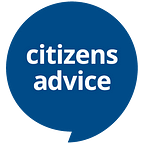Most people are targeted by scammers. Why don’t they do anything about it?
More people would take action on scams if there was one place to report them
Our new research shows that most people have been targeted by a scam.
Almost three quarters (72%) of adults aged 18 and over have been targeted by scammers in the last 2 years. They’re targeted through the post, phone calls, text messages, emails, online, and face to face on their own doorsteps. Over a third (37%) have been targeted 5 times or more.
But less than half of them are taking steps to protect themselves. Even fewer — around a third — take steps to protect a friend or family member.
This could be because most people are quite confident in their ability to spot a scam. Despite this, more than 1 in 10 of those who were confident did get drawn in.
Scams are getting more sophisticated. Scammers are operating across all channels of communication, from copycat websites seeking to extract personal information and emails that look like they’re from banks, to letters promoting fake competitions, lotteries and investment opportunities.
Why don’t most people don’t report scams?
Scams are a type of fraud, and this is now the most common offence in the UK.
6 out of 10 people say they would be willing to report a scam, yet nearly 7 out of 10 didn’t report the last scam they came across.
This seems to be because people don’t think there’s any point — 1 in 5 people who we spoke to said that they didn’t think it was worthwhile.
Of the people we spoke to who’d fallen victim to a scam, a third had lost money.
We need to highlight the importance of reporting scams. This is how scammers get caught. When scams aren’t reported, it’s more difficult for the authorities and industry to identify and take action against fraudsters. It restricts their ability to understand who is most likely to fall victim to a scam
Reporting is also an essential part of preventing friends and loved ones from being targeted. 11% of the people we spoke to knew friends or family members who have lost money to a scam.
Older people especially appear to be less confident in their ability to spot a scam, and less likely to take measures to protect themselves compared to other groups. But two thirds of the people we spoke to have taken no action to help protect friends or family. Take up of the Telephone and Mailing Preference Services — both designed to help people block calls from scammers — is low.
Who should you report scams to?
We think the government and other organisations should work together to develop a more joined-up process for reporting scams. 2 in 5 people said they would be more likely to report a scam if there was a single organisation to report them to —so this is something we’re pushing for.
Scams Awareness Month is over for this year, but to protect yourself and the people you care about, find out how to play your part and act on scams.
